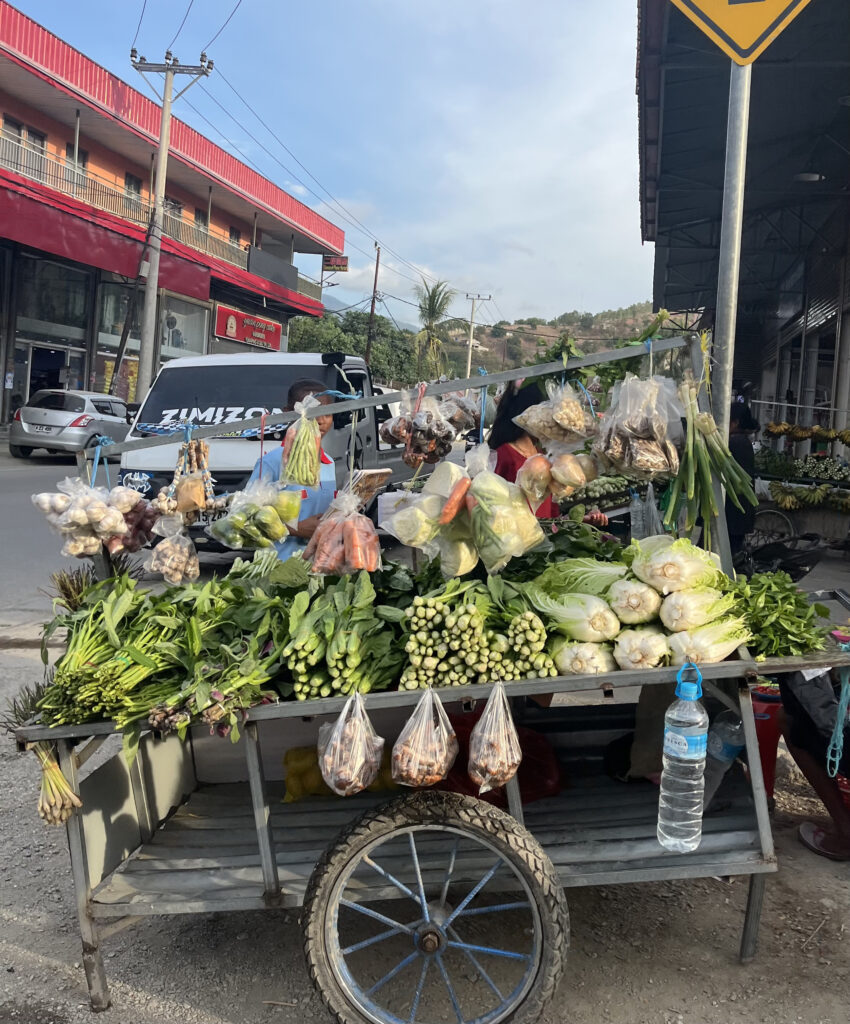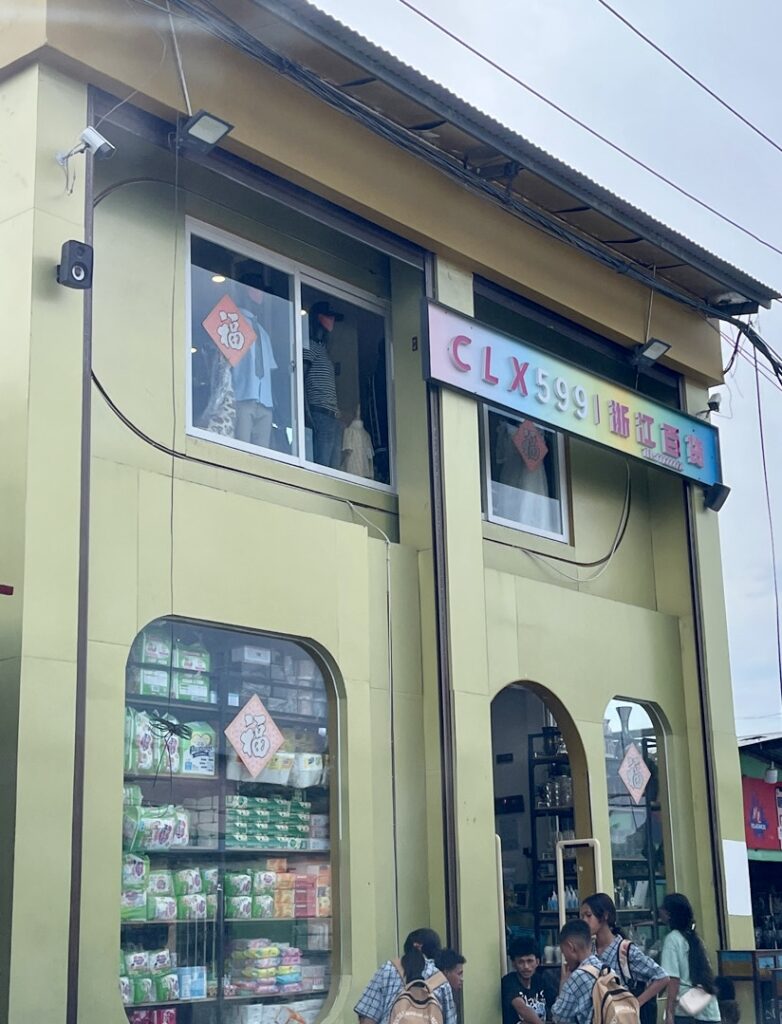Shifting Streets: How Chinese “One Dollar Shops” Are Redefining Urban Life in Dili, Timor-Leste
When Via Guterres ’26 walked through her hometown of Dili, the capital of Timor-Leste, she noticed something changing. The small local stores she grew up visiting were disappearing. In their place stood bright, multi-story “one-dollar shops” owned by Chinese merchants. What started as small discount stores had grown into sprawling shopping centers that, as she said, “became our version of a mall.”
Her summer research project, “The Influence of Chinese ‘One Dollar Shops’ on Urban Commercial Landscapes in Dili, Timor-Leste,” funded by the Center for Urban and Global Studies (CUGS) through Grossman and Kelter Funds, investigates how these imported businesses are reshaping the city’s economy, culture, and appearance. Through dozens of on-site interviews with customers, local vendors, and Chinese shop owners, Via tried to understand what drives their popularity, and what their rise means for Dili’s future.
“I grew up seeing local stores everywhere,” she said. “Now most of them are gone. The Chinese shops sell everything – clothes, food, furniture – under one roof, and people go there because it’s convenient and cheap.”
Her fieldwork revealed how deeply these shops have embedded themselves in everyday routines. Many residents choose them for their low prices, vast selection, and proximity to neighborhoods. At the same time, smaller local stores struggle to compete. Yet some local vendors have adapted creatively: street vegetable sellers now set up in front of the large Chinese stores to catch spillover customers.

Timor-Leste’s economic history helps explain the trend. The young nation, independent only since 2002, uses the U.S. dollar as its currency. That stability, she found, attracts Chinese entrepreneurs seeking low-risk investment and few regulatory barriers. “Anyone can open a business with just one dollar in registration fees,” she explained. “There’s almost no restriction, which makes it easy for foreign shops to multiply.”

As the number of Chinese-owned businesses grows, so does their visual footprint on the city. Three-story concrete buildings, uniform signage, and red decorations for Lunar New Year are now typical along Dili’s main streets. “You can already see a kind of new skyline forming,” she said. “If it continues, our future skyscrapers might all belong to these shops.”
Via’s interviews also revealed cultural gaps. “Most Chinese shop owners don’t learn our local language or celebrate our holidays,” she said. “They bring their culture here, which adds diversity, but it also risks erasing part of ours.”
At the same time, her conversations showed that most residents rarely view the changes through a cultural lens. For many, these shops are simply part of daily convenience rather than symbols of globalization. “When I talked to young people, I expected them to be worried about losing local identity,” she said. “But almost everyone told me they don’t really think about it – they just appreciate that the shops have everything they need and are open all day.” This generational indifference points to a subtle but significant shift: Dili’s emerging consumer culture is being shaped less by nostalgia and more by practicality.
Despite Via’s initial frustration, speaking with young Timorese changed her view. “I started the project angry that our local shops were disappearing,” she admitted, “but many people just see the convenience. Some even benefit. So I ended up feeling more neutral than negative.”
Looking ahead, Via hopes to expand her research into government policy, investigating how regulation (or the lack of it) shapes Dili’s urban transformation. “Right now I’ve captured what consumers and shop owners think,” she said. “Next, I want to know what the government thinks. Because these one-dollar shops aren’t just changing where people shop, they’re changing what our city is becoming.”
